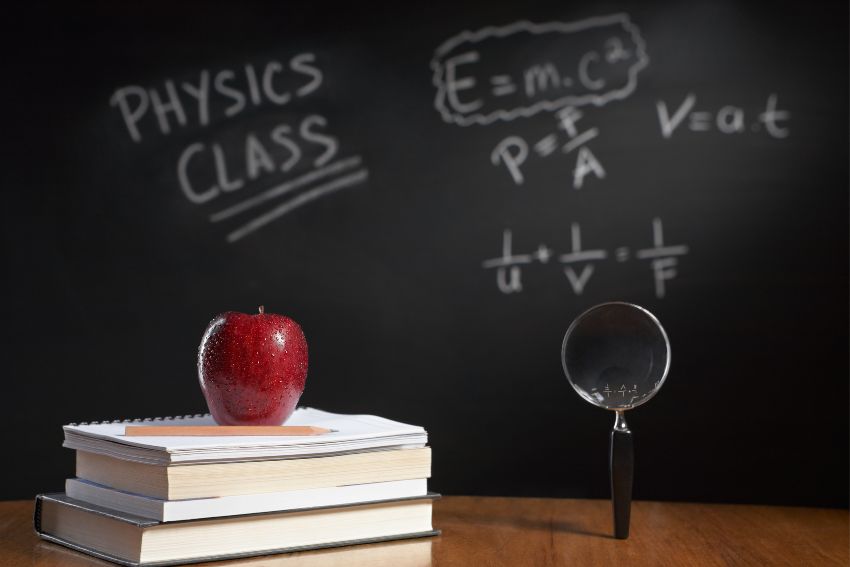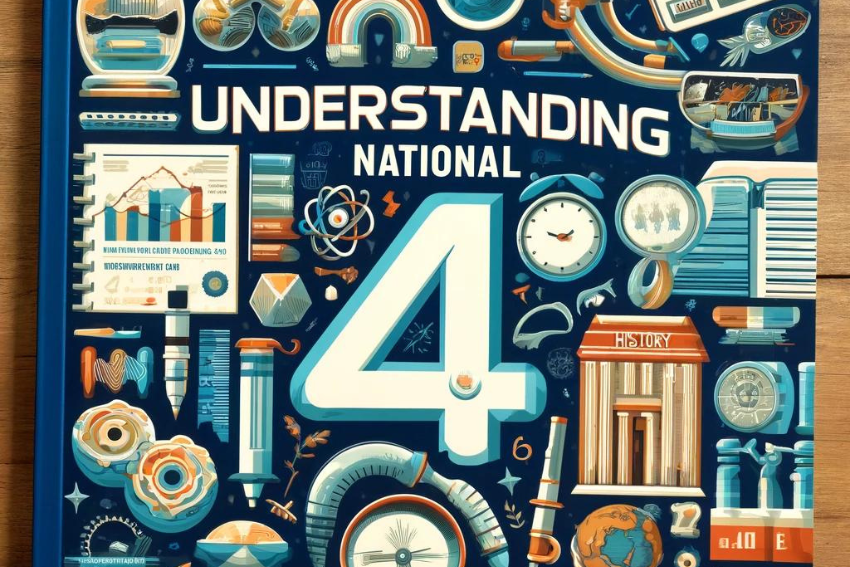A Level Physics – Everything You Need to Know
A Level Physics is a subject that challenges you to think clearly, apply logic, and work with precision. It builds on GCSE knowledge and introduces more complex ideas, helping you develop a deeper understanding of how physical systems behave. From forces and energy to particles and fields, you’ll explore a wide range of topics that form the foundation of modern physics.
Studying A Level Physics shows that you can handle complex material, solve problems, and think critically. It’s a respected subject that supports further study in science, maths, and engineering and helps you build skills that are valued across many different paths.
In this blog, we’ll go through everything you need to know about A Level Physics and at the end of this blog you will have full knowledge about important parts of this subject.
A Level Physics – Exam Boards
Before you start A Level Physics, it’s important to know which exam board your school or college follows. The main ones are AQA, Edexcel, and OCR, and while they all cover the core ideas of physics, the way they present the topics and assess them can be slightly different.
All three boards include major areas like mechanics, electricity, waves, particles, and fields. You’ll also complete required practicals and apply mathematical skills throughout the course. However, the structure and topic order can vary.
For example, AQA is known for its clear layout and straightforward exam questions. Edexcel tends to include more short-answer questions mixed with longer written responses. OCR often breaks the content into more detailed modules, with a bit more flexibility in optional topics depending on the route taken (like OCR A or OCR B).
Despite these small differences, the core knowledge stays the same, so whichever board you’re following, you’ll be learning the same essential physics. It’s worth getting familiar with your specific specification early on, so you know exactly what’s expected in your exams.
A Level Physics Topics
A Level Physics covers a wide range of topics that build your understanding of how physical systems work. Each topic links closely to the others physics topics and together they give you a solid base in both theory and application. Here’s a breakdown of the main areas you’ll study:
| Topic | What You'll Learn |
| Measurements and Their Errors | Precision, accuracy, uncertainty, and data analysis in experiments. |
| Particles and Radiation | Atomic structure, subatomic particles, radioactive decay, and quantum phenomena. |
| Waves | Properties of waves, reflection, refraction, diffraction, and interference. |
| Mechanics and Materials | Motion, forces, energy, momentum, and material properties like stress and strain. |
| Electricity | Current, voltage, resistance, and circuit laws like Ohm’s and Kirchhoff’s laws. |
| Further Mechanics & Thermal Physics | Circular motion, oscillations, internal energy, and heat transfer. |
| Fields and Their Consequences | Gravitational, electric, and magnetic fields, plus their real-world applications. |
| Nuclear Physics | Nuclear decay, fission and fusion, and energy generation in nuclear processes. |
| Optional Topics | Astrophysics, Medical Physics, Engineering Physics, or another board-specific option. |
Is Physics A Level Hard?
A Level Physics has a reputation for being one of the harder subjects and that’s fair to say. It’s challenging, but not impossible. What makes it tough is the combination of deep theory, maths, and the amount of content you need to remember.
You’ll be expected to understand complex ideas, apply formulas, and explain your thinking clearly in both written and practical work. It’s not just about learning facts, you also need to solve problems, break down situations logically, and show how everything connects.
That said, many students find the subject incredibly rewarding. If you enjoy science and don’t mind a bit of a challenge, A Level Physics can be a really satisfying subject to study. Students interested in sciences often complement their studies with A-Level Biology or A-Level Chemistry, which strengthens skills in scientific analysis and research. It’s normal to find some topics hard at first, but with regular practise, clear revision strategies, and the right support, it does get easier.
Common Challenges In A Level Physics
A Level Physics is a subject that many students find rewarding but it definitely comes with its challenges. Even students who enjoy science can find certain parts of this subject tricky. Here are some of the most common areas where students tend to struggle:
Using Maths in Physics
Physics and maths go hand in hand. You’ll need to use formulas, rearrange equations, and apply maths in solving problems. What makes this hard isn’t just the maths itself, it’s knowing when and how to use it in different physics questions.
Understanding Abstract Ideas
Some parts of physics can feel really hard to picture. Topics like quantum physics or fields don’t always match up with what we experience in everyday life. This can make them more difficult to understand at first.
Getting Practical Work Right
Physics isn’t just about theory. You’ll also be doing experiments and developing lab skills. Some students find it hard to take accurate measurements or explain what their results mean, especially under time pressure.
Managing the Workload
There’s a lots of topics to cover in A Level Physics. When you’re also studying other subjects, it can be tough to keep up. If you don’t stay on top of things, revision can start to pile up quickly.
Answering Exam Questions
Knowing the material is one thing, but presenting it effectively in an exam is another. Students often struggle with structuring their answers, prioritising important points, or misinterpreting the questions, which can adversely affect their grades.
The good news is that these challenges can all be tackled with the right approach and support. At the same time, you’re not expected to get everything right straight away, it’s all part of the learning process.

A Level Physics Revision and Past Papers
Revising for A Level Physics topics can feel like a big task, but using the right tools makes it much easier. One of the best ways to prepare is by working through past papers. They help you get familiar with A Level Physics question styles and apply what you’ve learned.
Start by reviewing your notes and breaking down each topic into smaller parts. Focus on key equations, definitions, and how different ideas connect. Once you’re confident, practise topic-based questions before moving on to full papers.
When using A Level Physics past papers, always check your answers with the mark schemes. Firstly, this shows you how to structure your responses and helps you learn exactly what examiners want to see. As your exam approaches, try full papers under timed conditions. This method is great for building stamina and improving your exam technique. To help you further, here are some useful revision tools you can explore:
- Official exam board websites (AQA, OCR, Edexcel): Great for past papers, mark schemes, and examiner reports.
- YouTube: Look for A Level Physics explainer videos that cover hard topics step by step.
- Flashcards: Use apps like Quizlet or make your own to help with definitions and formulas.
- Revision guides: Books from trusted publishers like CGP or Collins offer summaries, practise questions, and tips.
- Your own notes: Rewrite main points in your own words and use diagrams to help you remember.
And if you’re finding certain topics difficult, don’t hesitate to ask your teacher or consider online tutoring for extra support. The more regularly you revise, the easier everything becomes.
Conclusion
A Level Physics is a subject that takes time, effort, and persistence. Some topics might feel difficult at first, but with regular practise and curiosity, things start to make sense. The key is to keep going even when it’s tough. Every step you take builds your understanding and brings you closer to your goals.
Physics is always evolving. The things we study today are just the beginning. That’s what makes the subject so exciting, there’s always more to discover. Whether you plan to study it further or just want to do your best at A Level, staying open to learning is what matters most.
If you ever feel stuck, remember you don’t have to figure it out alone. Online tutoring in A Level Physics can make a big difference. With one to one support from someone who understands the A Level Physics subject, you can get clear explanations and stay motivated throughout the year. Keep asking questions, keep practising, and trust that you’re making progress, one step at a time.
You Might Be Interested In
A Level Physics Formula Sheet – Essential Tools for Exam Success
Energy Equation In Physics – Everything You Need To Know
A Level Physics Data and Formulae Sheet
FAQs:
Is A Level Physics hard to study?
A Level Physics is considered one of the more challenging subjects because it combines complex mathematical concepts with scientific theory. However, with one-to-one tutoring, students can build confidence in topics like Mechanics and Electromagnetism and improve exam performance.
What topics are covered in A Level Physics?
A Level Physics includes a wide range of topics such as Mechanics, Electricity, Waves, Particles and Quantum Physics, Nuclear Physics, and Thermal Physics. Many courses also explore Fields, Astrophysics, and Practical Skills through experimental investigations.
How can an A Level Physics tutor help me improve?
An experienced A Level Physics tutor can explain difficult ideas clearly, help you understand equations, and provide exam-specific guidance. They also focus on problem-solving techniques for topics such as Electricity, Fields, and Quantum Physics
Which exam boards offer A Level Physics?
A Level Physics is offered by major UK exam boards including AQA, Edexcel, OCR, and WJEC. Each board covers core topics such as Waves, Forces, Energy, and Particle Physics, with variations in practical and theoretical assessment.








